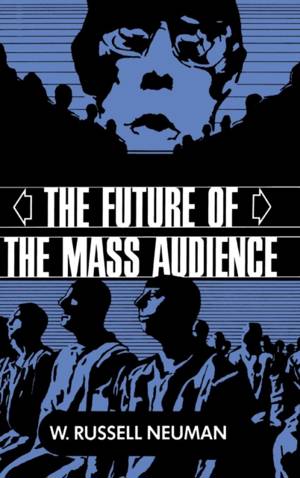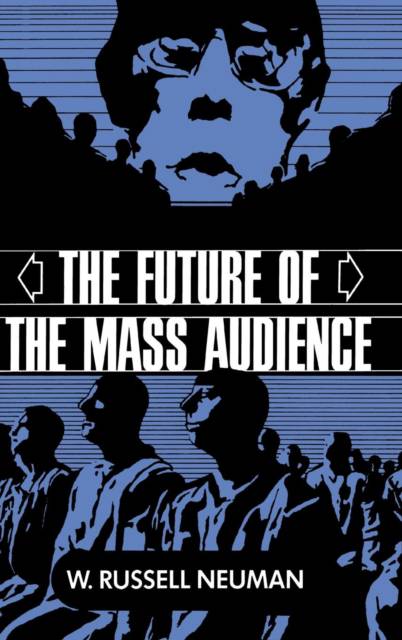
- Afhalen na 1 uur in een winkel met voorraad
- Gratis thuislevering in België vanaf € 30
- Ruim aanbod met 7 miljoen producten
- Afhalen na 1 uur in een winkel met voorraad
- Gratis thuislevering in België vanaf € 30
- Ruim aanbod met 7 miljoen producten
Zoeken
€ 175,95
+ 351 punten
Uitvoering
Omschrijving
The Future of the Mass Audience focuses on how the changing technology and economics of the mass media in postindustrial society will influence public communication. It summarizes the results of a five-year study conducted in cooperation with the senior corporate planners at ABC, CBS, NBC, Time Warner, The New York Times, and the Washington Post. The central question is whether the new electronic media and the use of personal computers in the communication process will lead to a fragmentation or "demassification" of the mass audience. This study demonstrates, contrary to the opinion of some analysts, that the movement toward fragmentation and specialization will be modest and that the national media and common political culture will remain robust. W. Russell Neuman, directs the Communications Research Group of MIT's Media Laboratory. He has published widely and among his recent books are The Paradox of Mass Politics (1986) and the The Telecommunications Revolution (1991). Prior to teaching at MIT he held posts at Yale University and University of California, Berkeley.
Specificaties
Betrokkenen
- Auteur(s):
- Uitgeverij:
Inhoud
- Aantal bladzijden:
- 220
- Taal:
- Engels
Eigenschappen
- Productcode (EAN):
- 9780521413473
- Verschijningsdatum:
- 31/01/1992
- Uitvoering:
- Hardcover
- Formaat:
- Genaaid
- Afmetingen:
- 161 mm x 237 mm
- Gewicht:
- 453 g

Alleen bij Standaard Boekhandel
+ 351 punten op je klantenkaart van Standaard Boekhandel
Beoordelingen
We publiceren alleen reviews die voldoen aan de voorwaarden voor reviews. Bekijk onze voorwaarden voor reviews.











